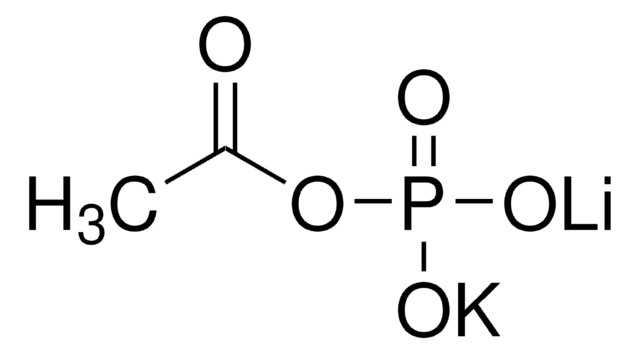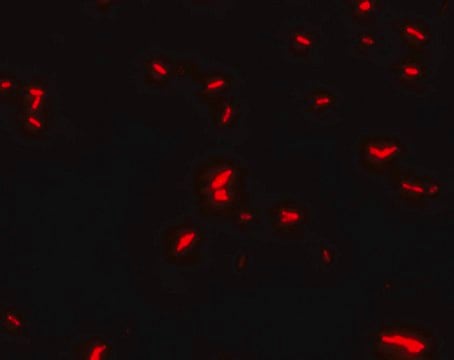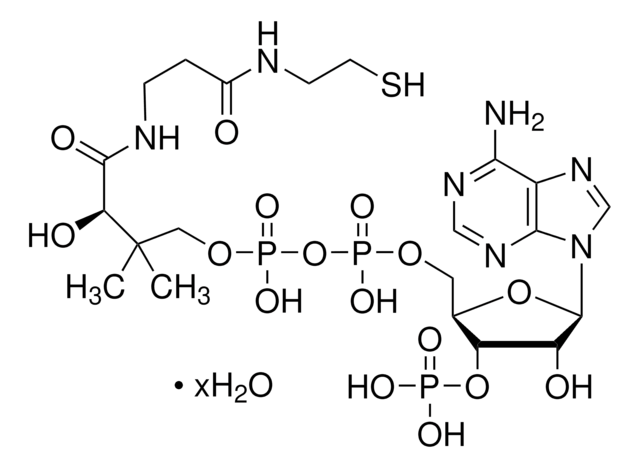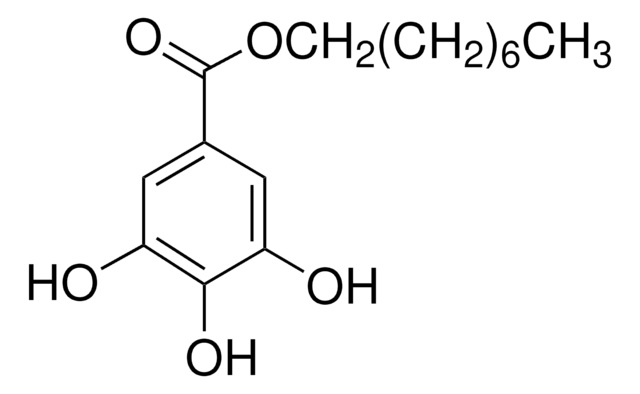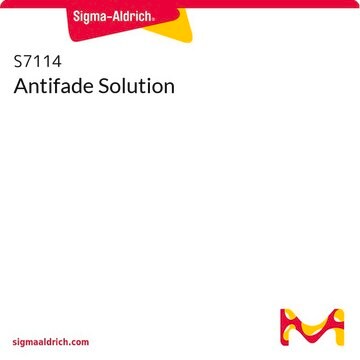02370
Propyl gallate
for microscopy, ≥98.0% (HPLC)
Synonym(s):
3,4,5-Trihydroxybenzoic acid propyl ester
About This Item
Recommended Products
grade
for microscopy
Quality Level
Assay
≥98.0% (HPLC)
form
powder
pH range
5.7-6.3
mp
146-149 °C (lit.)
density
1.21 g/cm3
application(s)
diagnostic assay manufacturing
hematology
histology
SMILES string
CCCOC(=O)c1cc(O)c(O)c(O)c1
InChI
1S/C10H12O5/c1-2-3-15-10(14)6-4-7(11)9(13)8(12)5-6/h4-5,11-13H,2-3H2,1H3
InChI key
ZTHYODDOHIVTJV-UHFFFAOYSA-N
Looking for similar products? Visit Product Comparison Guide
Application
Reconstitution
Signal Word
Danger
Hazard Statements
Precautionary Statements
Hazard Classifications
Acute Tox. 4 Oral - Aquatic Acute 1 - Aquatic Chronic 1 - Eye Dam. 1 - Skin Sens. 1
Storage Class Code
13 - Non Combustible Solids
WGK
WGK 2
Flash Point(F)
368.6 °F - closed cup
Flash Point(C)
187 °C - closed cup
Personal Protective Equipment
Certificates of Analysis (COA)
Search for Certificates of Analysis (COA) by entering the products Lot/Batch Number. Lot and Batch Numbers can be found on a product’s label following the words ‘Lot’ or ‘Batch’.
Already Own This Product?
Find documentation for the products that you have recently purchased in the Document Library.
Customers Also Viewed
Our team of scientists has experience in all areas of research including Life Science, Material Science, Chemical Synthesis, Chromatography, Analytical and many others.
Contact Technical Service